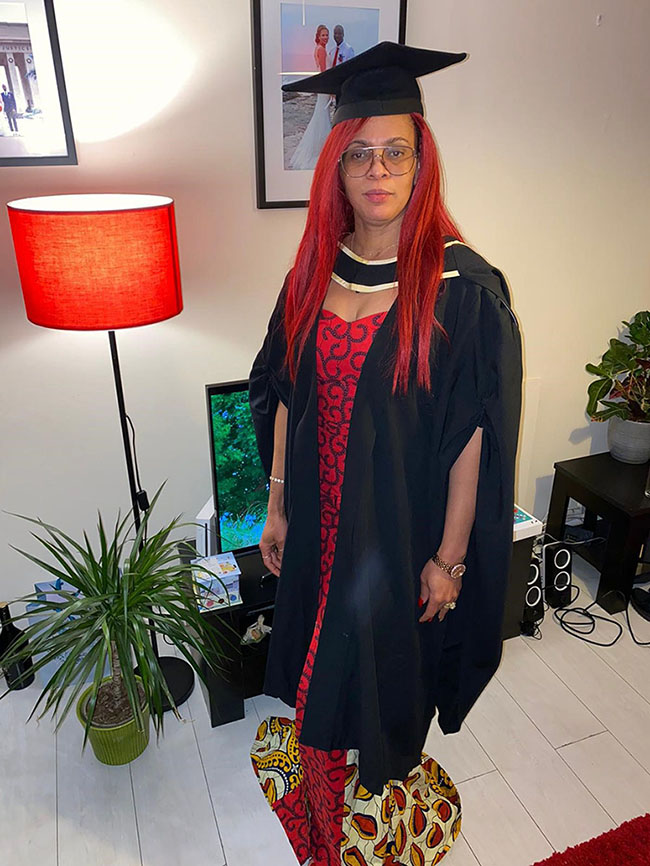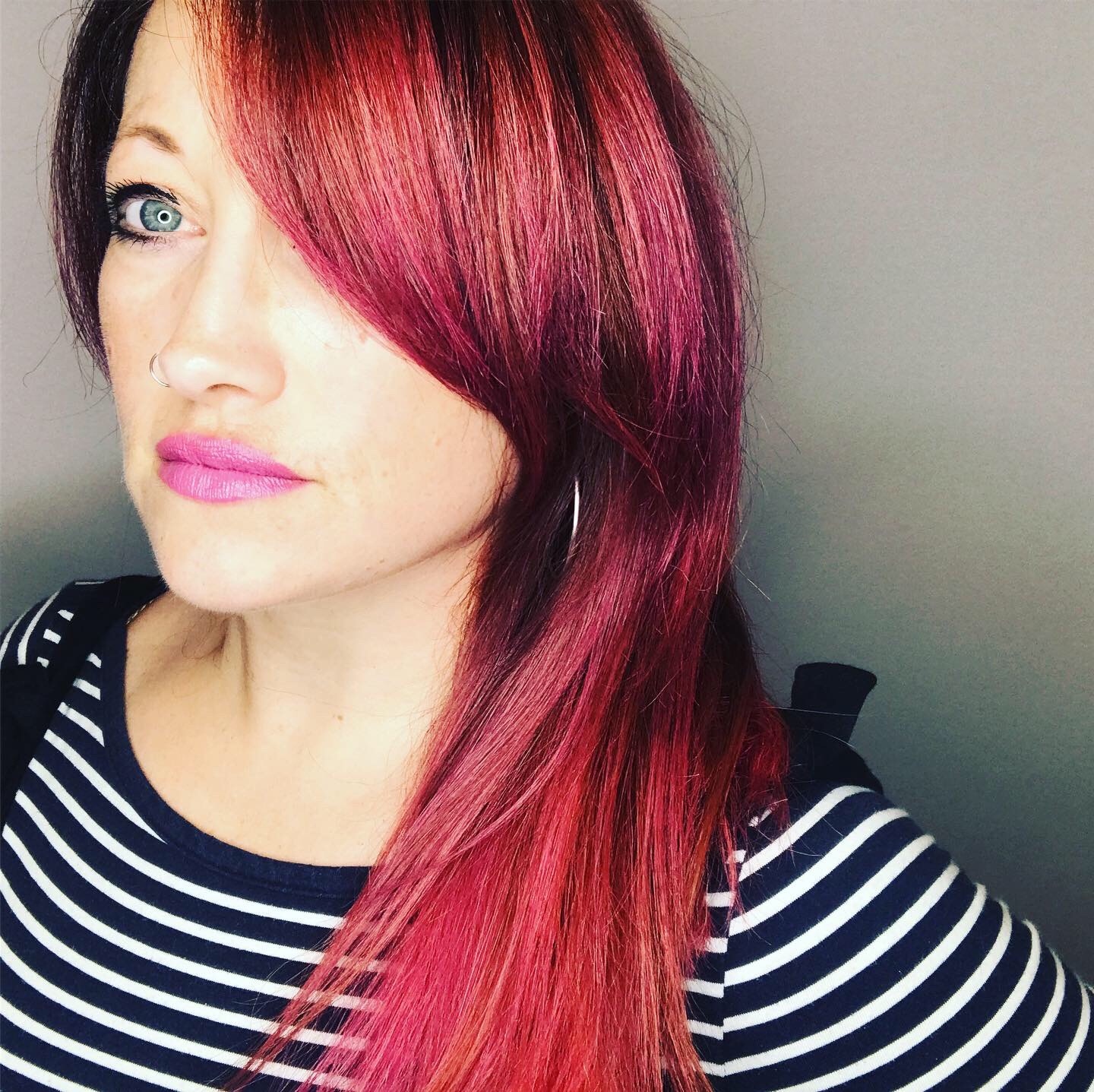Demelza Honeyborne was born in Wales, taken to Liberia, West Africa aged 2 years old and survived a 10-year civil war, physical assault and years out of education to go on to recently graduate with a degree in Psychology. This is her #BBKgrad story.
The early years in Liberia, ongoing conflict and the battle to stay in education:
My mother was from Liberia. She and my Dad had separated, so she took me to her home country when I was just two years old. Liberia’s 10-year civil war started in 1990 when I was 13 years old and my mother died that same year. My father had left when I was about four, and I had no contact with him so I effectively became like an orphan during the war. Schools were closed due to the war for a few years- I can’t remember the length of closure…probably till 1996, but they reopened at points where there were cease fires so I missed a massive portion of my junior and senior schooling.
At 18 years old, I got pregnant with my twins and attempted school again. I would study during the day and work at a nightclub from the evening until 4am and then start all over again with classes at 8am. I did this for a year or so. I later got a day job which meant I had to go to night classes. My children were taken away from me by their dad’s parents when they were one as they deemed me unqualified to be a mother due to my circumstances (having no parents, being unmarried). However, I got them back when they turned five. This meant I could work, study and stay off the streets.
A chance reunion with her father and return to the UK:
I had sent a letter to my old neighbourhood in Wales (I could only remember the first line of the address) to see if anyone knew where my dad might be. I didn’t think I’d have any luck but in 1999, the British Red Cross found my father and reconnected us, which is a totally miraculous happening on its own, hence I returned to the UK in 2000.
I worked for a year upon arriving to the UK- two jobs, seven days a week- until I saved enough money to bring my children over. A friend of mine, Brenda, had encouraged me to get back to study but I still had the mentality that I couldn’t dream and achieve. But I had a strong faith…I always remember my Mum would drop me off at Church when she was alive then would come back and get me.
Study goals in sight and enrolment at Birkbeck:
Transport for London, which is my employer, offers free courses; and working full-time with kids meant it was difficult to study outside of work, so I enrolled onto one of the courses. I did my GCSE English and passed with a B grade. The following year I did my Math GCSE and passed with a C. That was around 2014 -2016. During this time, I became a Station Supervisor which meant a change to my shift pattern. I then enrolled at West Kensington and Chelsea college in 2016 and studied Access to Psychology while working at night.
This then led me to join Birkbeck where I studied BSc Psychology and achieved a 2:1 degree whilst still working full-time, including night shifts. My professors were all super-amazing especially Gillian Forester who is super-awesome. It was very difficult but rewarding to know that at my age (43 years old), I could still achieve my dreams. Birkbeck is amazing!
I am currently doing my master’s in Health and Clinical Psychology with Birkbeck. My aim is to go into counselling and volunteer in helping people who have experienced traumatic situations as myself. During the war I was subjected to the trauma of sexual assault which became a norm. There was a war and being alive was most important, with the belief that once I had another day it was okay. I was a survivor.
Counselling and a mission to help others:
I have had different forms of counselling and I have spoken at length to trusted friends and my pastors, so I believe I can better manage my trauma and live a productive life. However, not many of my friends or those who experience similar situations can. Additionally, before coming to the UK, counselling wouldn’t have been something I would use. As most Liberians even today still believe, to admit any mental illness is a sign of weakness and you can’t tell the world you are hurting, or you will appear weak and a failure. Additionally, people in deprived counties like Liberia do not have access to counselling facilities, so once I qualify, I want to look into offering virtual counselling or volunteering overseas, perhaps attached to a charity.
FURTHER INFORMATION
▪ Study Psychology at Birkbeck.
▪ Learn more about the Health and Clinical Psychological Sciences Master’s degree.

